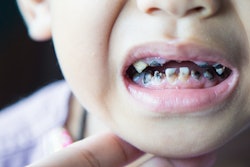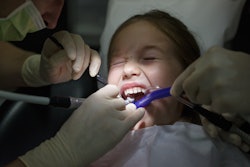
Individuals with attention deficit hyperactivity disorder (ADHD) may be at twice the risk of sustaining traumatic dental injuries (TDIs). The systemic review was published in the European Review for Medical and Pharmacological Sciences.
Therefore, clinicians should be trained to raise awareness and implement preventive strategies to reduce the risk of TDIs in individuals with ADHD, the author wrote.
"The present study of scientific evidence may provide awareness regarding the prevention of TDIs among this vulnerable group," wrote author, A.A.H. Alzahrani, PhD, of the Al-Baha University Dental Health Department in Saudi Arabia (Eur Rev Med Pharmacol Sci, May 2024, Vol. 28:9, pp. 3303-3312).
ADHD is one of the most common chronic health disorders in school-aged children. Managing the relationship between ADHD and TDIs requires a multidisciplinary approach involving dental professionals, pediatricians, psychologists, and educators. Early identification and intervention for ADHD can reduce the risk of TDIs through targeted behavioral and educational strategies, Alzahrani wrote.
After searching multiple databases, 12 studies were included in this review. The prevalence of TDIs among individuals with ADHD ranged between almost 10% and 68% compared to 0.8% and approximately 45% in the healthy control group. The meta-analysis revealed that individuals with ADHD had 1.98 times higher odds (odds ratio = 1.98; 95% confidence interval, 1.51 to 2.59) of experiencing TDIs compared to those without ADHD, according to the review.
The findings highlight the functional impairments associated with ADHD, such as disrupted motor coordination and difficulties in forming peer connections. Children with ADHD are hyperactive, have trouble staying focused, and struggle to manage their behavior. Creating socially supportive school environments can significantly reduce the risk of TDIs, the author wrote.
The review had limitations, including the small sample size and the varying ages of participants, which ranged from 7 to 17 across different dentition stages. Further research should use standardized methodology to improve the understanding of the oral health conditions in ADHD patients, Alzahrani wrote.
"Despite those limitations, this study provides insights into the association between TDIs and ADHD individuals," Alzahrani concluded.




















